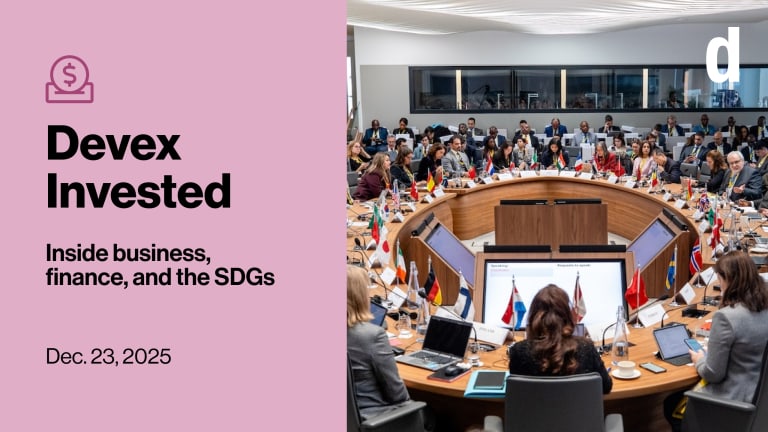One might assume that calling Africa “a continent full of potential” is praise. But Samaila Zubairu, president and CEO of the Africa Finance Corporation, said that framing makes it sound as if Africa’s value lies only in the future. In reality, the resources, talent, and opportunities already exist today — the potential is here now.
“We need to find ways to intentionally transform that potential to progress and prosperity for all our people, because there's so much that Africa can offer to the world,” he said at Devex Impact House on the sidelines of the World Bank and International Monetary Fund annual meetings. “And as Africans, we must lead in demonstrating through the examples of successful projects and enterprises that we build that indeed we can have prosperity — and that can only be done by investment, not aid.”
In fact, Zubairu said he’s “actually happy” the U.S. aid cuts happened, a sentiment that dovetails with his long-running belief that Africa needs to invest in itself.








